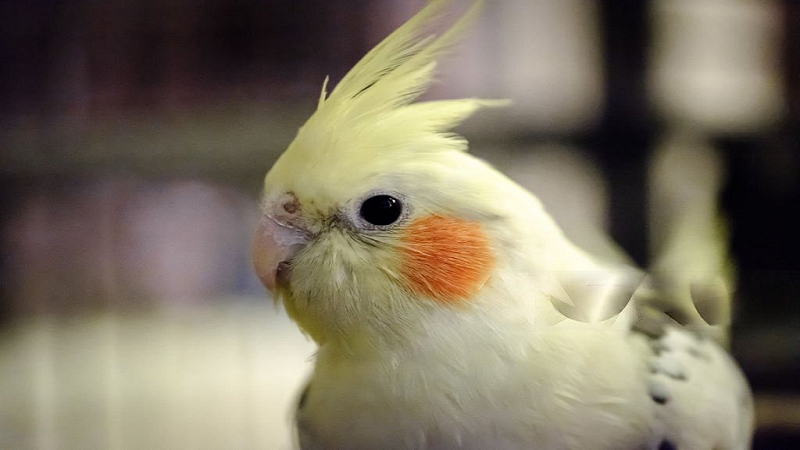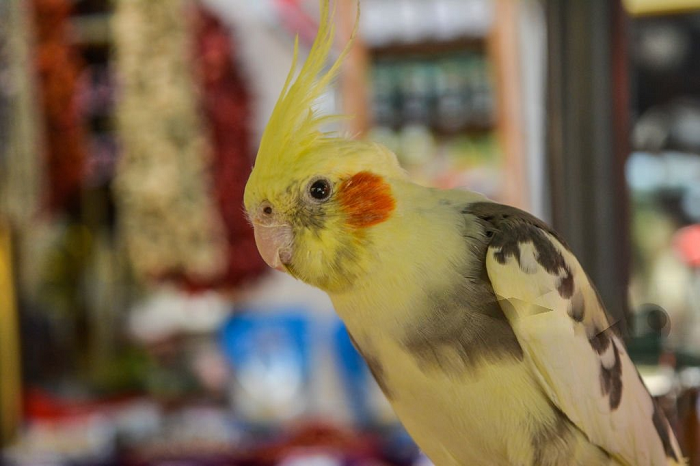If you are cockatiel owners, then you have several questions about ‘do cockatiels have ears?’ ‘where are ears on their body?‘, and ‘how do cockatiels hear? Or do they use another thing to listen? Keep cool!
Most of birds don’t have any visible ears, and as you know that mostly birds hunt. And, they are also capable to make sense of the world through their sight. Now, we come on about do cockatiels indeed have ears?
If you haven’ enough time, your answer in short ‘Yes’! Cockatiels birds have ears, although they are just two holes. Don’t go away from here, because little knowledge is dangerous! In this article, we will spread light on different parameters regarding cockatiels ears along with their anatomy. So keep reading it!
Anatomy of Cockatiel Ears
When observing a cockatiel that you might not see their ears easily. Like as mammals, cockatiels haven’t external ear flaps. Cockatiel’s ears are small openings located on either side of their head that covered by feathers. This adaptation of ears helps to keep safe their ears from debris and predators.
As internally, cockatiel ears have three main parts: the outer ear, middle ear, and inner ear. The outer ear consists the auditory canal that lead to the middle ear. It contains a single ossicle that known as the columella.

This bone allows to transmit sound vibrations to the inner ear. Where the cochlea processes these signals into nerve impulses, and then brain interprets as sound.
As compared to humans, they have three ossicles in the middle ear. The simple structure of avian ears is nonetheless highly get effectiveness for their hearing needs.
Hearing Capabilities of Cockatiels
Cockatiels have a complex auditory system that allows them to perceive sound in a unique way as compared to humans. Here are some key points about the hearing capabilities of cockatiels:
Also Read: How Long Do African Grey Parrots Live? African Grey Lifespan
Frequency Range
- Capable of hearing between 250 Hz to 8,000 Hz
- Sensitive to a broad spectrum of sounds
Sound Sensitivity
- Highly attuned to subtle environmental sounds
- Crucial for detecting predators and other threats
Communication
- Utilize a variety of calls and songs for interaction
- Vocalizations include chirps, whistles, and squawks
- Can mimic human speech and household sounds
Auditory Learning
- Young cockatiels learn vocalizations from parents and their surroundings
- Important for social bonding and effective communication
Behavioral Responses
- Display head tilting and crest adjustments in response to sounds
- Engage in vocal responses (e.g., chirping, whistling) to stimuli
Environmental Awareness
- Depend on hearing for navigation and locating food sources
- Use auditory cues to recognize owners and familiar individuals
Social Interactions
- Hearing is essential for establishing social hierarchies and mating calls
- Use auditory signals to define territory and alert others to danger
Where Are Located Cockatiels Ears?
Cockatiels have ears located on the sides of their heads, and covered by auricular feathers. These ear’s holes are not externally visible. They are only seen when you gently move apart the feathers in that part.
Also Read: Scarlet Macaw Lifespan: Facts & Care Tips for Longevity
The placement of their ears as similar of humans; it is situated on the sides of the head. Cockatiels’ ears help to make communication, perception of all sound, and understanding of their environment. Thus, their ears help to support significantly to their overall sensory experience.
Do Cockatiels Get Ear Infections?
Yes! Cockatiels can also get ear infections. However, they may not be as common as in mammals, but cockatiel’s ears can be easily affected by various factors, such as bacterial, fungal growth, and trauma.
Signs of Ear Infections
- Discharge from the ear
- Redness or swelling around the ear opening
- Head shaking or tilting
- Scratching or rubbing of the affected ear
- Tenderness or sensitivity around the ear area
- Loss of balance or coordination
- Changes in behavior, such as decreased appetite or lethargy
- Vocalizations indicating discomfort or pain
- Foul odor emanating from the ear
- Formation of crusts or scabs around the ear opening
If you see any signs of your cockatiel’s ear infection, then quickly to get veterinary care. An avian veterinarian can diagnose the infection and prescribe appropriate treatment.
Do Cockatiels Like Loud Noises?
Generally, cockatiel parrots don’t enjoy loud noises. Indeed, they can get startle and stress as come in loud or sudden noises. Thus, it can lead to anxiety and potential health issues. Cockatiels have sensitive hearing ability, so excessive noise can damage to their hearing power.
So, you should always provide a peaceful and quiet environment for cockatiels, especially in their living space. But, some cockatiels may become accustomed to certain household noises; if they are exposed to them gradually and in moderation.
As a responsible pet owner, you always monitor your cockatiel’s reactions to noise. So, you get minimize exposure them to loud sounds to maintain their health and happiness.
Do Cockatiels Have Good Hearing?
Yes! Cockatiels have excellent hearing. They have highly sensitivity to a large range of frequencies that allows them easily to detect subtle sounds in their environment.
This acute hearing capability helps to survival in the wild. This also helps them to detect predators, communicate with other birds, and navigate their surroundings.
In captivity, cockatiel’s hearing contributes to respond to their owners’ voices, learn to mimic, and engage in vocalizations.
Therefore, you should always provide stimulating auditory environment and maintaining their auditory health.
Tips: Caring for Cockatiel Auditory Health
Here are essential tips for caring for cockatiel auditory health, as following them:
Also Read: Quaker Parrot Colors Mutation
Auditory Stimulation and Interaction: It is essential the auditory stimulation and interaction for your cockatiel’s well-being. In which, you can add such toys that provide visual and auditory stimulation like as mirrors and bells.
Regular Check-Ups: You should regular visits to the vet for health checks to ensure your cockatiel gets in well-condition. You can prevent any ear’s health-related issues to identify early signs of illness.
Dietary Enrichment: A varied diet not only meets nutritional needs but also offers the mental stimulation for cockatiels. Offer a mix of seeds, pellets, and fresh fruits to ensure both nutrition and mental engagement for your bird.
Maintain Noise Levels: Always keep the environment free from excessively loud noises to prevent stress and hearing damage. So, you can use white noise machines or soft music to create a calming auditory environment.
Monitor for Infections: You should always watch for signs of ear infections such as discharge, redness, or unusual behavior. If, you see any symptoms of ear problems, then quickly consult an avian vet
Ear Hygiene: Never inserting any objects into your cockatiel’s ears. Always keep their environment clean to prevent infections from dust and debris
Keep Away to Toxins: You always keep cockatiels away from smoke, aerosols, and other airborne pollutants, because they can harm their respiratory and auditory health.
FAQs (Frequently Asked Questions)
Can Cockatiels Hear Better than Humans?
Cockatiels have a different hearing range as compared to humans. They are particularly good at hearing higher frequencies that are often using in their vocalizations and communication.
How Do Cockatiels Use Their Hearing in The Wild?
In the wild, cockatiel’s use hearing helps to communicate with other birds, identify predators, and trace food sources. They are capable to pick up on subtle sounds that may indicate danger.
Can Loud Noises Affect Cockatiel’s Hearing?
Yes! Loud noises are dangerous to a cockatiel’s hearing. They can get stress and potentially damage their sensitive ears, due to sudden or persistent loud sounds.
Do Cockatiels Have Ear Holes?
Yes! Cockatiels have ear holes on the sides of their head. They are covered by feathers, unlike visible ears like humans. These ear holes are essential for their highly sensitive hearing. So, it allows them to detect sounds from far distances and have excellent directional hearing.
Final Remarks
Now, we hope that you have full understood about cockatiels ears and good ability to hear. If this post is valuable for you, then please share it along with your friends, family members, pet lovers or relatives over social media platforms like as Facebook, Instagram, Linked In, Twitter, and more.
Also Read: How Long Do Macaws Live? Macaws Lifespan in Wild & Captivity
Do you have any experience, tips, tricks, or query regarding on this? You can drop a comment!
Have a Nice Day!!






